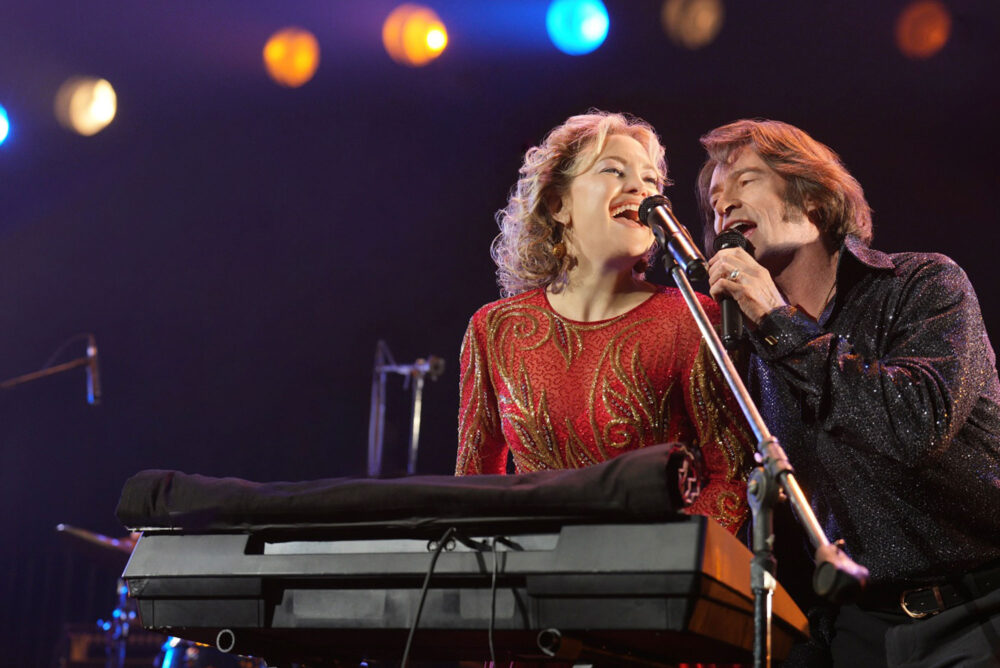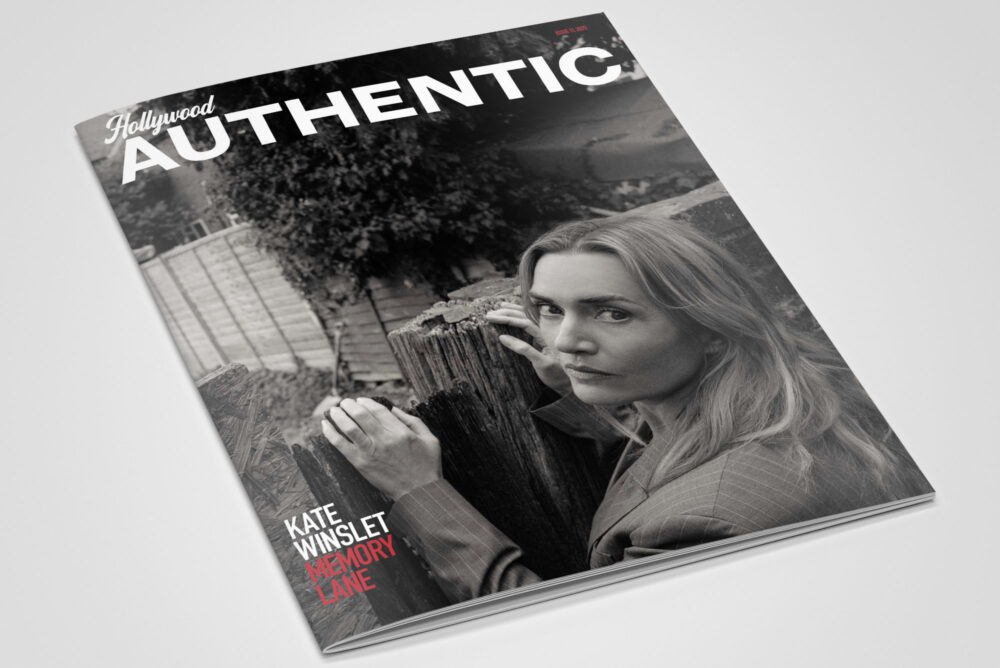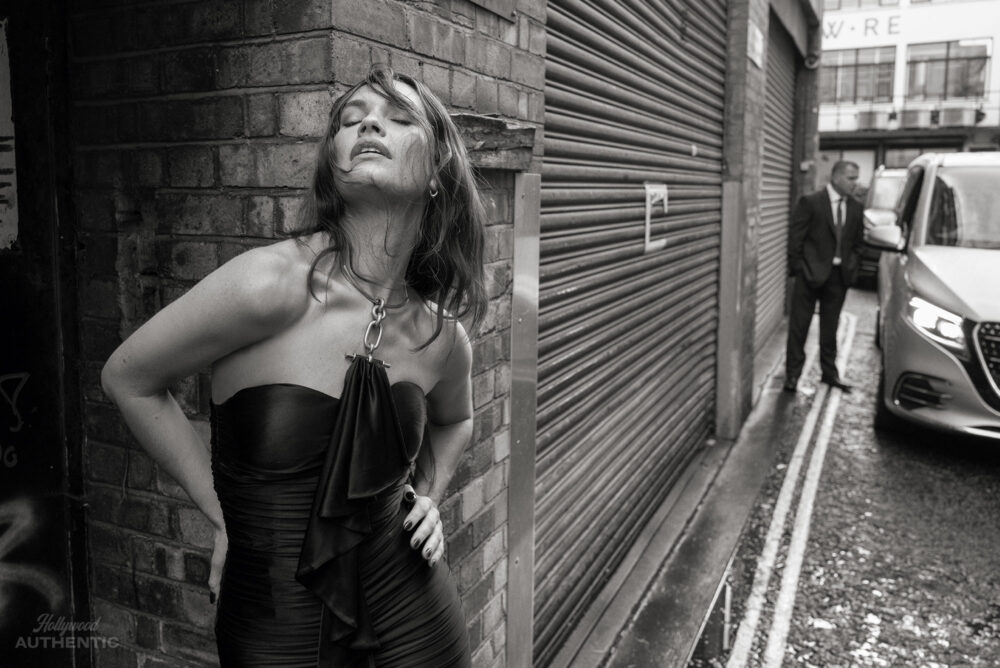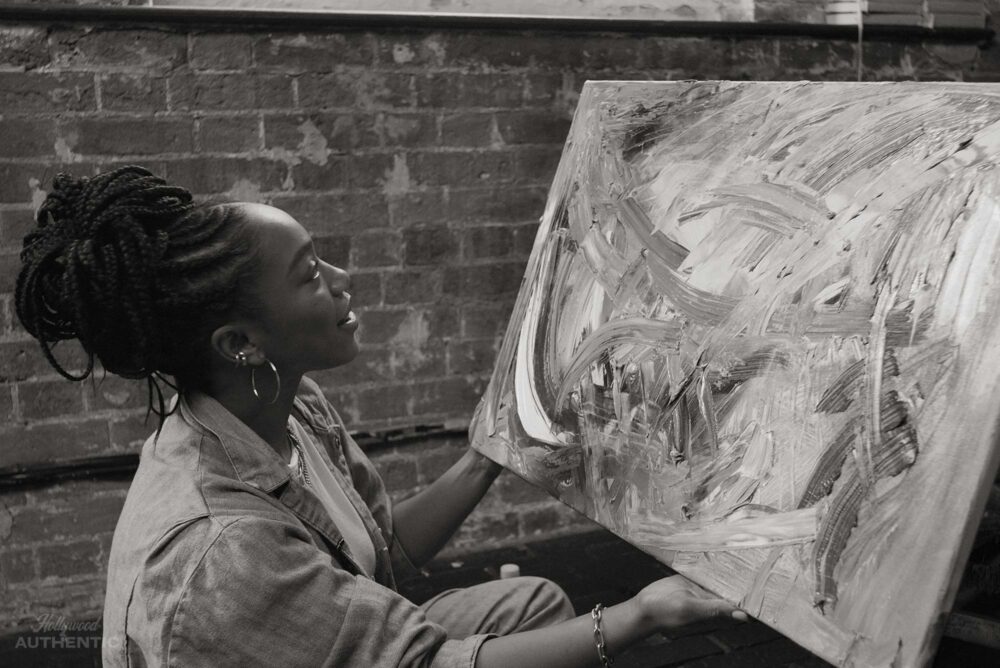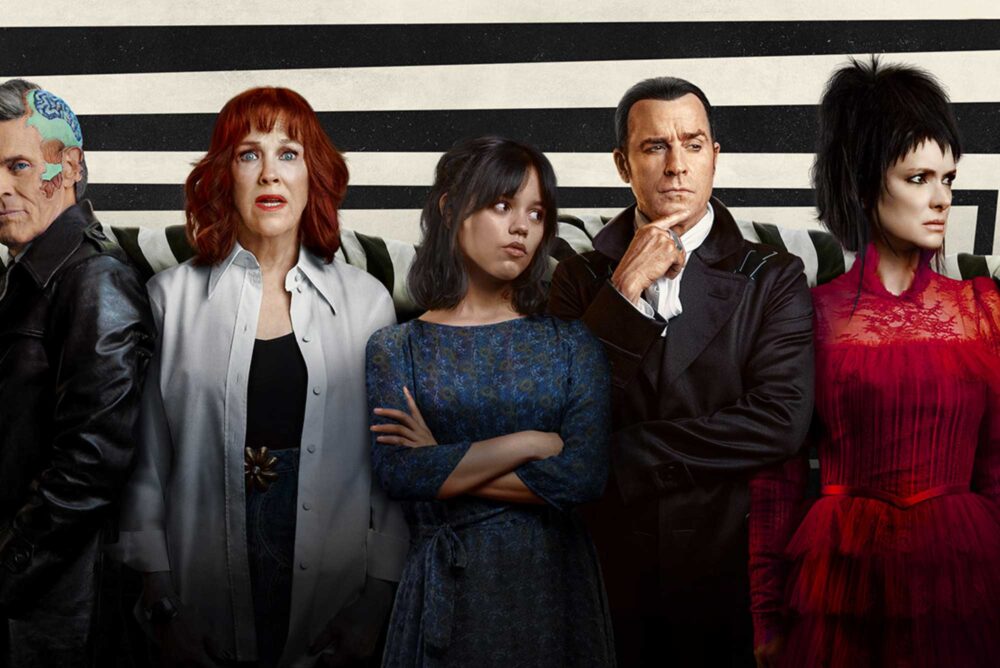Photographs by MARK READ
Words by JANE CROWTHER
If you drive north from San Francisco on the 101, the impressive engineering feat of the Golden Gate Bridge is a postcard view that wows. But further north, nestling among the rolling countryside and a carpet of trees, lies another architectural feast for the eyes – one that seems plucked straight from a sci-fi movie. With its cerulean domes, scalloped roof, textured spire and clean lines, Marin County Civic Center in San Raphael recalls the architecture of Jabba’s Palace in Star Wars: Return Of The Jedi and the roofline of Naboo in The Phantom Menace. As large as any palace and situated in the dip between golden hills, you could almost believe that this mid-century complex housing the county’s hall of justice, library, post office and administration buildings might be expecting a visit from C-3PO and R2-D2, or hosting a celebration parade presided over by Padmé Amidala.
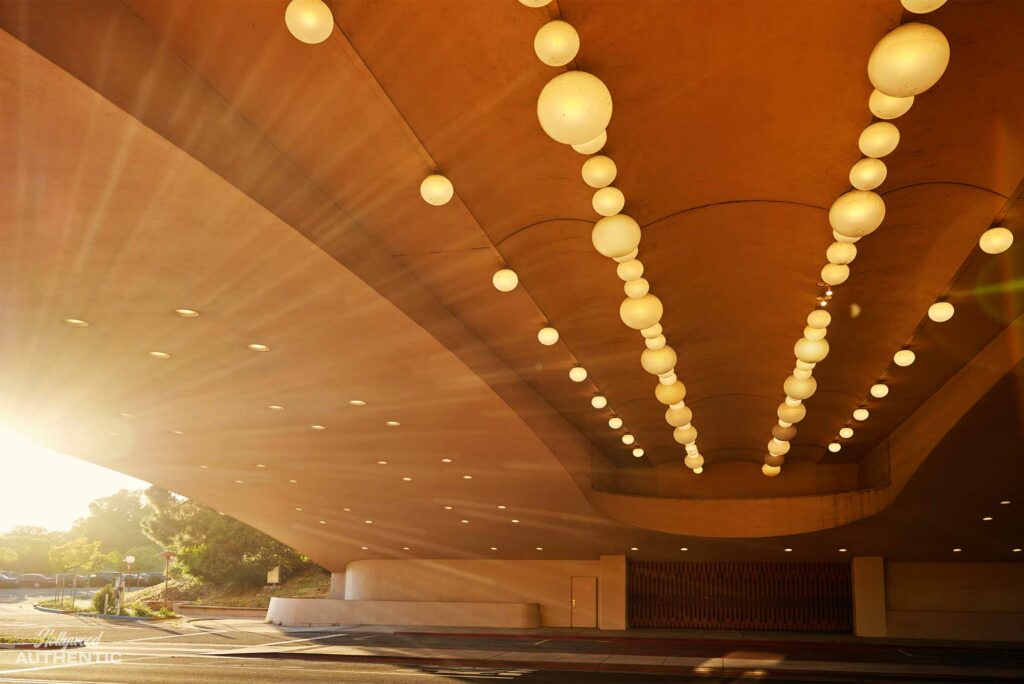
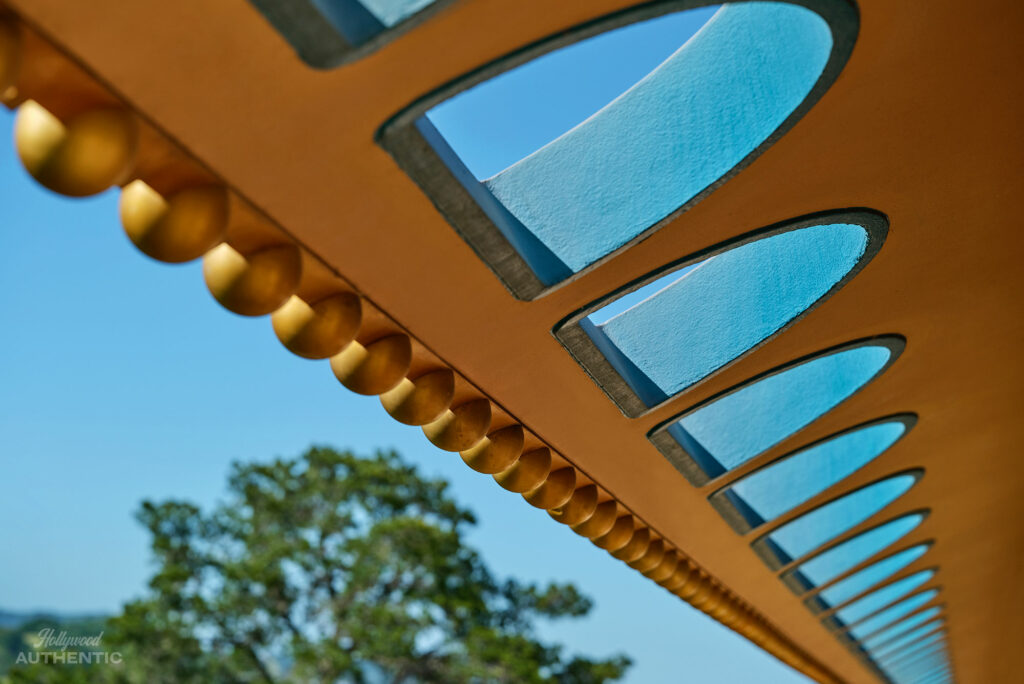
Marin County Civic Center in San Raphael recalls the architecture of Jabba’s Palace in Star Wars: Return of the Jedi and the roofline of Naboo in The Phantom Menace
That’s no coincidence – long-time Marin resident George Lucas conceived and filmed his Star Wars films in the surrounding area (the Ewoks made their home in the redwood forest north of the site), and his creative hub, Skywalker Ranch, sprawls nearby. But his first brush with the centre came in 1970, when the fledgling filmmaker created a future dystopia in THX-1138 and used the municipal buildings as interior and exterior locations for his debut feature film. Self-described as a ‘frustrated architect’, Lucas may not have been good enough at maths to create bricks-and-mortar designs, but as a celluloid world-builder his vision shaped cinema and popular culture. Perhaps his shoot in Frank Lloyd Wright’s truly visionary space was more influential than merely kicking off an interstellar career.
Lucas isn’t the only filmmaker to be struck by the futuristic splendour of the building. When scouting for a place to represent the near-future headquarters of Gattaca for the 1997 film of the same name, director Andrew Niccol chose the roof and the library of the centre to convey the sense of order, precision and sterility of eugenics. Many visitors now recreate the arrival to work for Ethan Hawke and Uma Thurman as they enter the hushed building and take the escalator up through the oval rotunda. And perhaps one of sci-fi’s leading lights, Philip K Dick, was inspired by the symmetry and style of the place – he visited the police department in 1971 to report a robbery at his house, fearing the CIA had ransacked his safe. The Marin County Civic Center would not be out of place in one of his bestselling books.
It would have likely pleased Wright to know his work caught the imagination of those looking to the stars – he conceived his building to withstand the test of time but also mature into the environment, planning trees that would not reach their full potential until long after he was gone, and designing structures that would require materials not yet available to him while he sketched. In this way, Wright was something of a time traveller himself – projecting into the future as he conceived the structure in 1958.
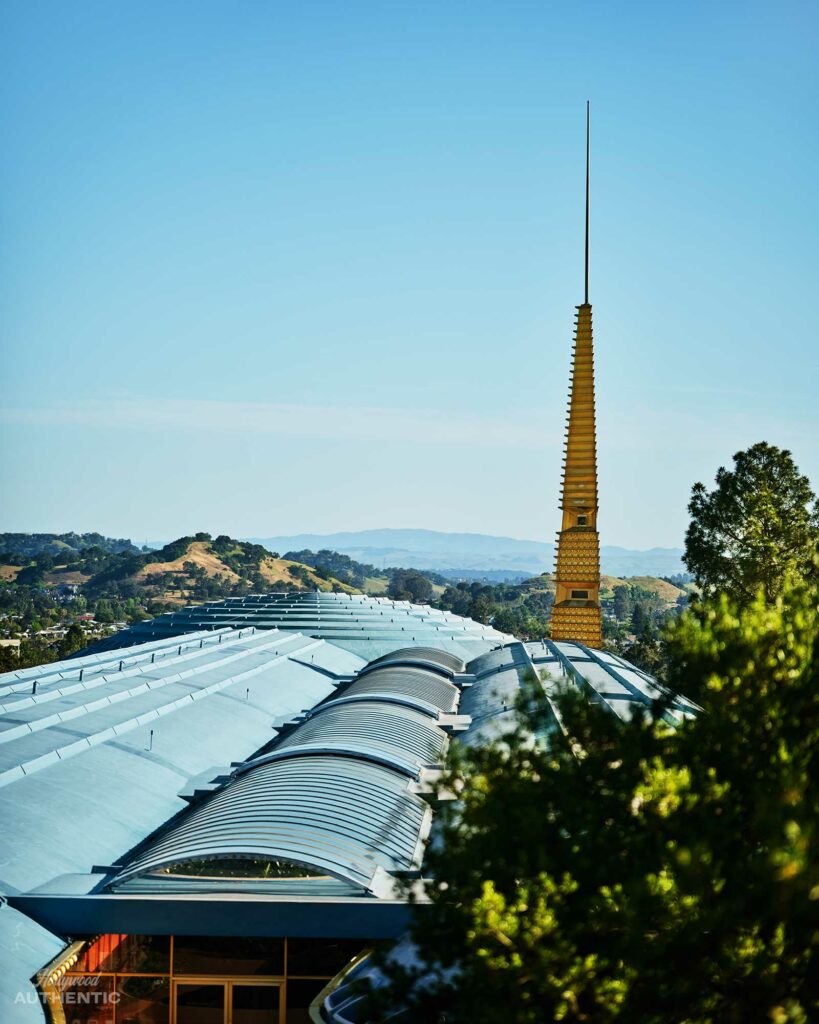
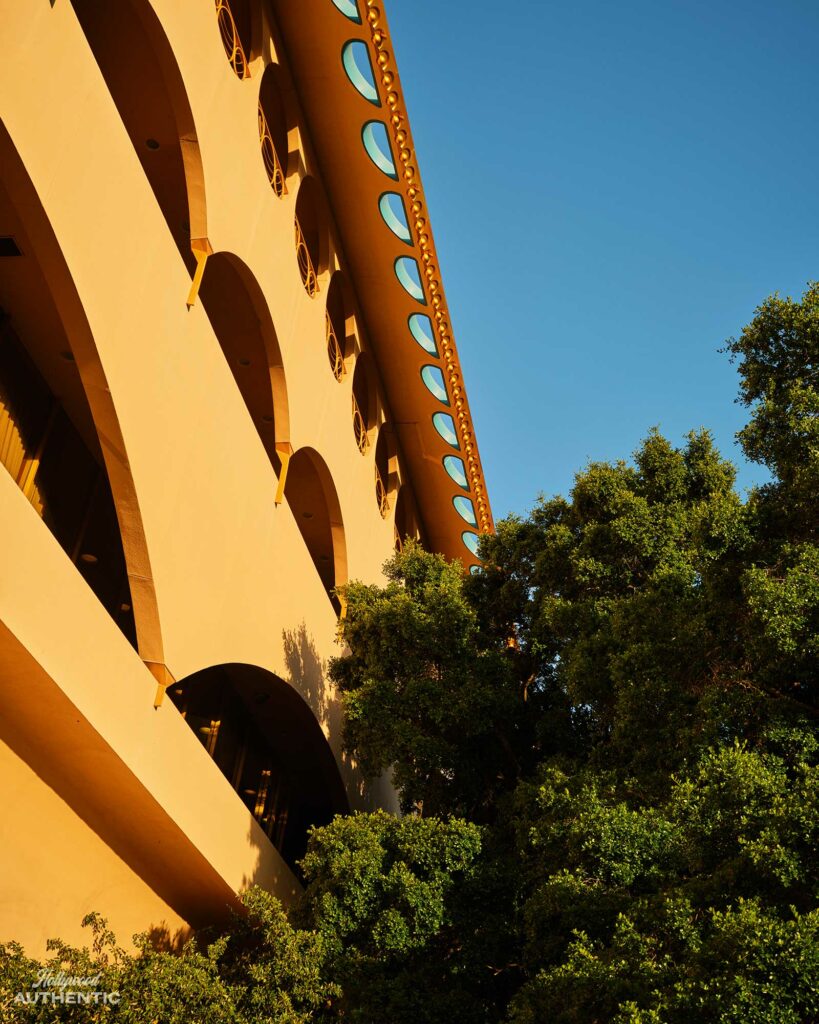
Despite his fame and reputation, Wright had not been the first choice to create the campus in San Raphael when the original courthouse burned down and needed replacing. Land was bought in 1956 and a selection committee looked at the submitted work of 26 architects (Wright refused to compete). Wright had featured on the 1957 New Year’s Day cover of House Beautiful magazine and committee member Vera Schultz and planning department head Mary Summers campaigned to offer the job to him without a submitted plan. In March 1957, he was lecturing at nearby Berkeley and was convinced to visit the proposed site. Gazing across the view from a jeep parked on the highest hill, he apparently could envisage a design immediately and took the commission. He was 90 years old and still inspired. ‘In Marin County you have one of the most beautiful landscapes I have seen,’ he said. ‘Here is a crucial opportunity to open the eyes not of Marin County alone, but of the entire country, to what officials gathering together might themselves do to broaden and beautify human lives.’
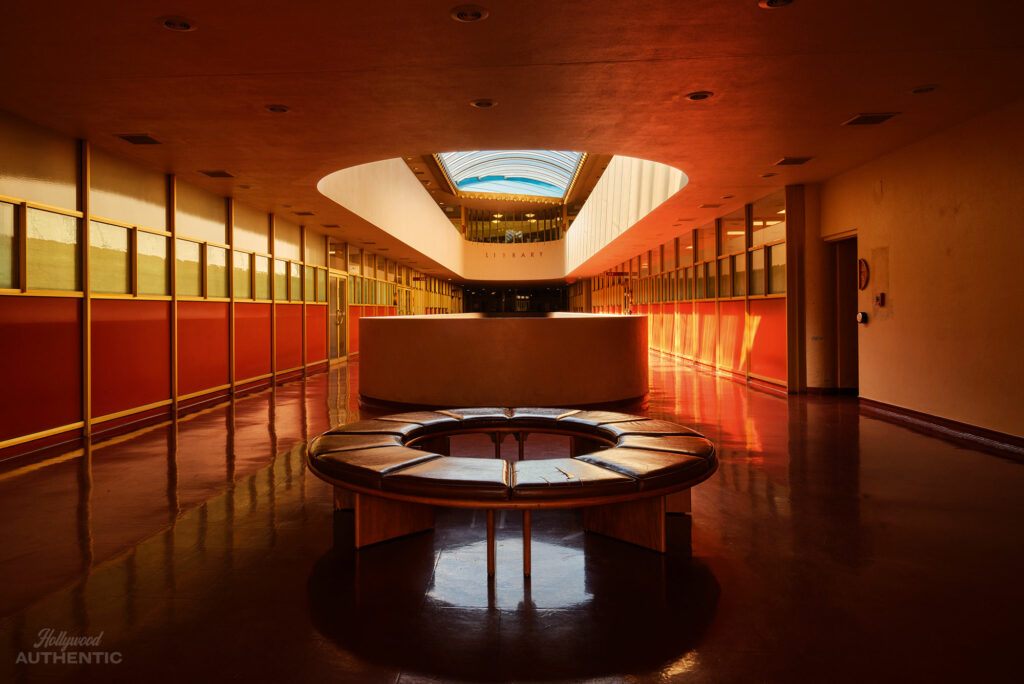
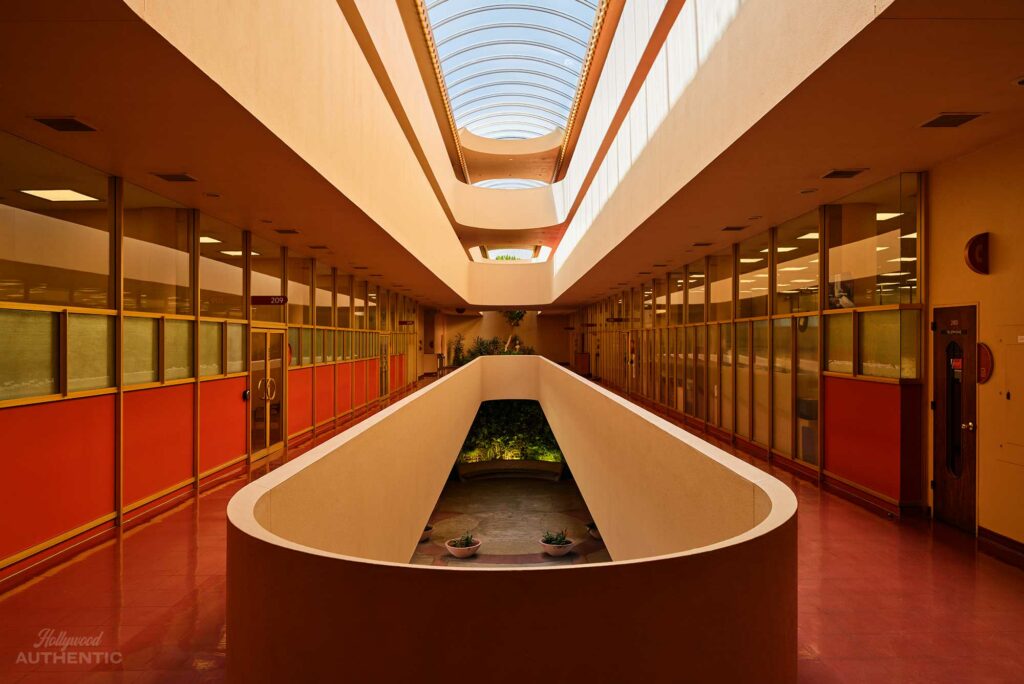
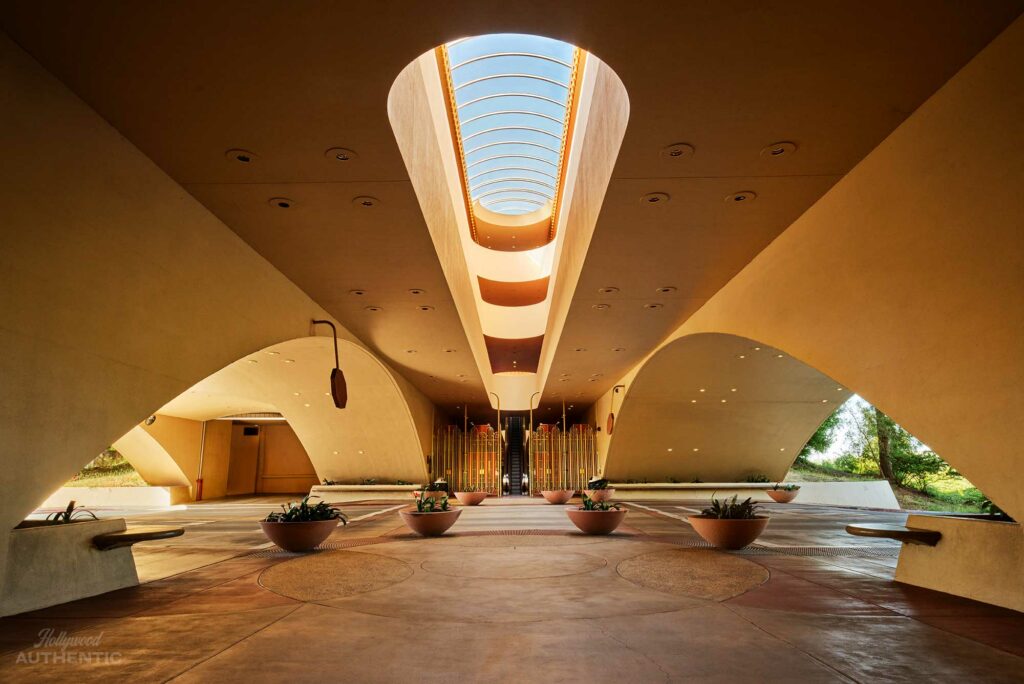
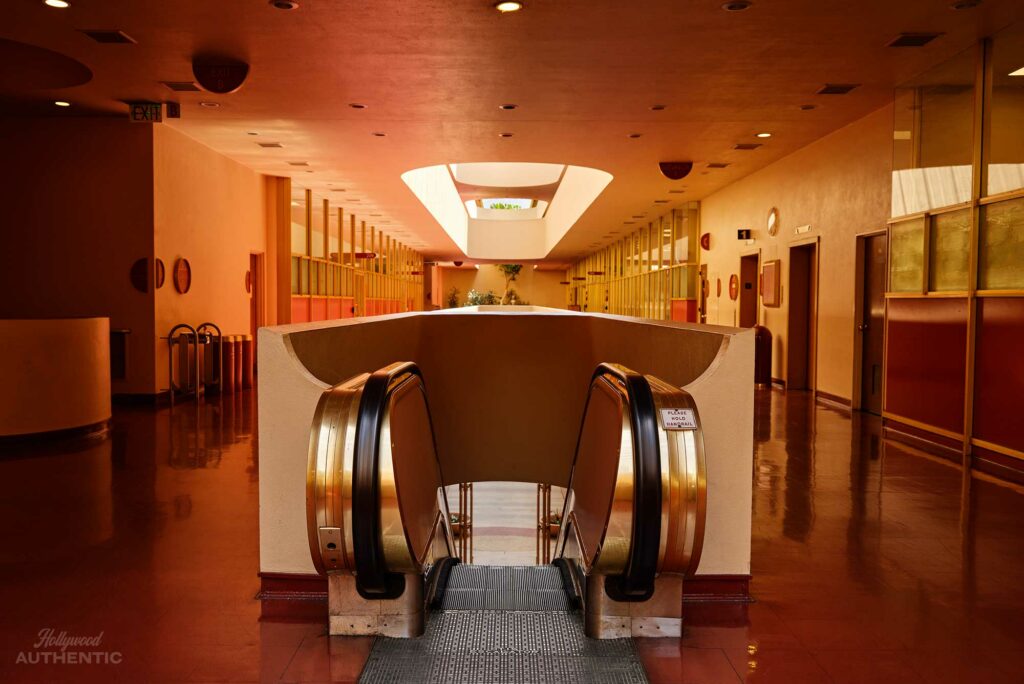
He certainly brought beauty to the valley – designing a 580 ft-long administrative building connected to an 880 ft-long Hall Of Justice and lozenge-shaped library, juxtaposed in classic Wright vernacular by a 172 ft-tall spire (that he erroneously told officials was a vital radio mast in order to get around height laws). His domes were intended to be gold to reflect the surrounding grassland; his interiors boasted his trademark ‘Cherokee red’ in lacquered doors and walls lining circular atriums; his floors custom tiles and terrazzo. His designs were organic rather than stoic and he incorporated literal organic architecture, planning a line of pine trees surrounding the site that would naturally die off to reveal slower growing native oaks over decades. And he predicted our reliance on the car, conceiving three arches in the building so that citizens could drive through the heart of county matters.
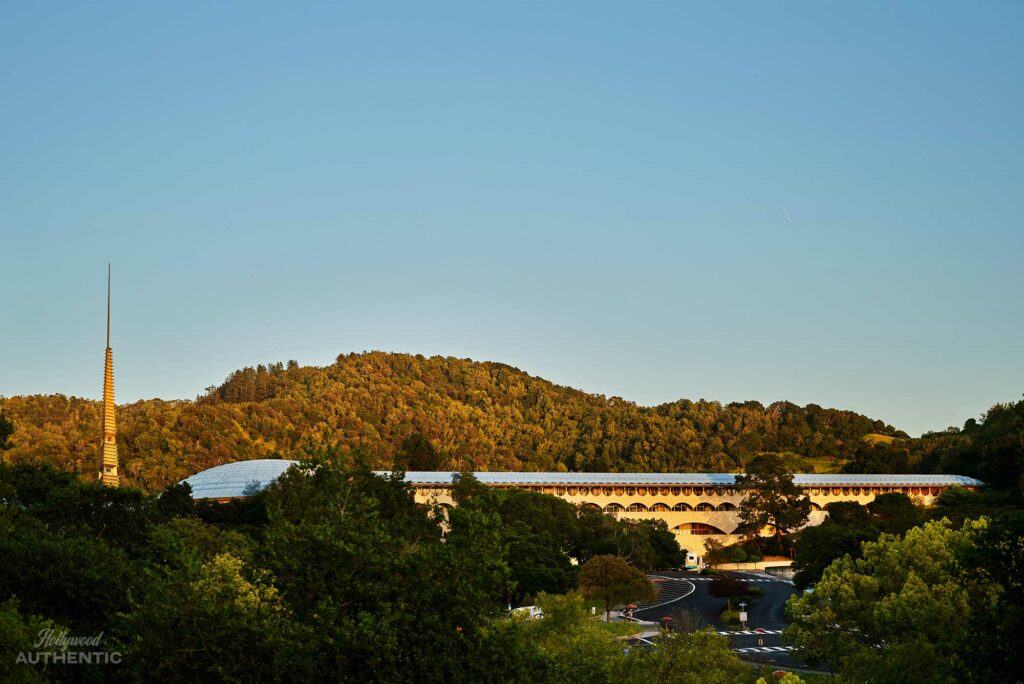
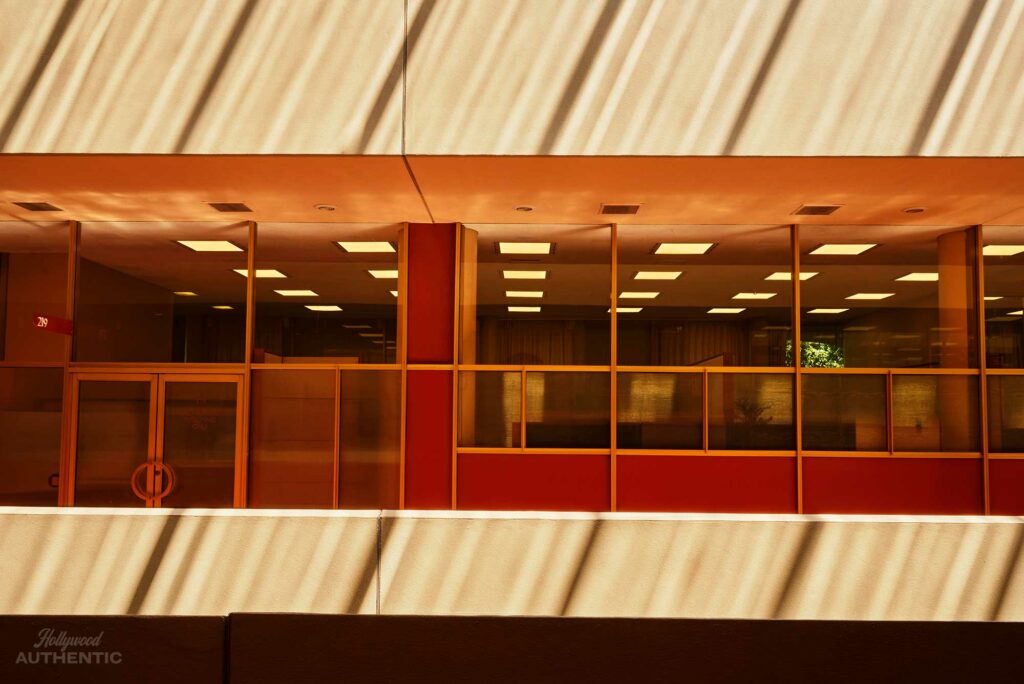
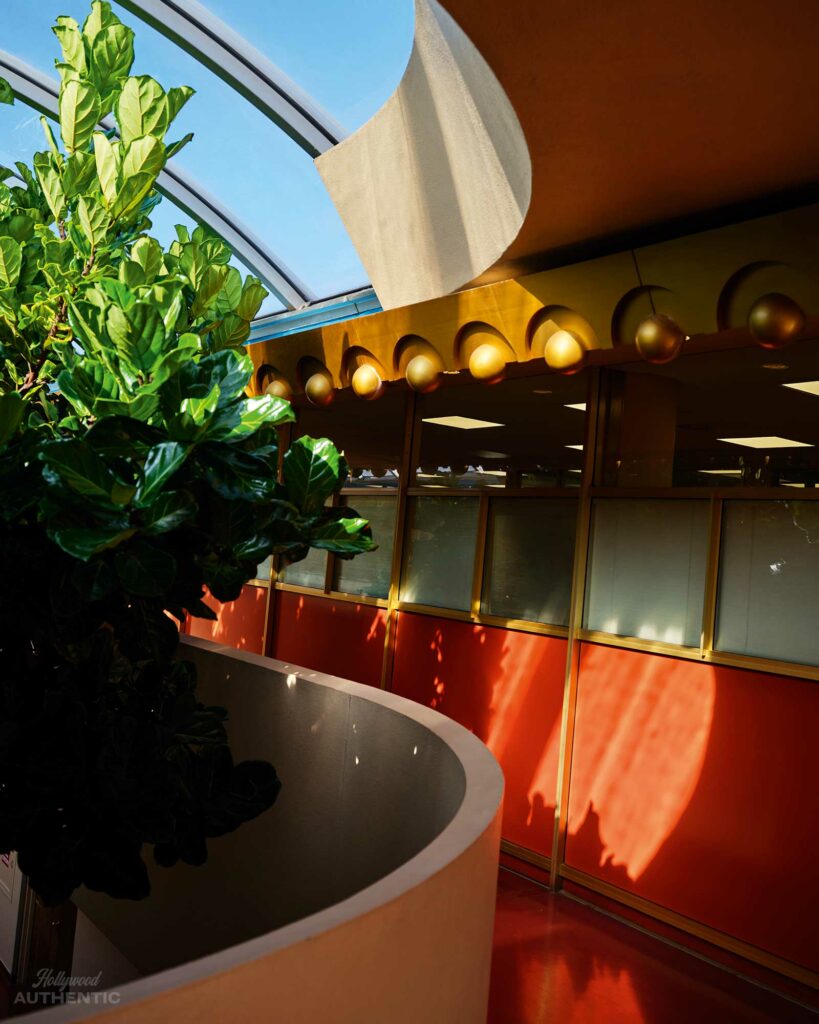
Wright died in 1959 before ground was broken in 1960, but his vision was brought to life in his absence and in accordance with his dream of a community environment that reflected the natural world around it. Interior woodwork and furniture designed by Wright and Aaron Green was fabricated locally at the San Quentin and Soledad Penitentiary wood shops. The gold dome was given a sustainable life with a switch to a material that would not tarnish, the blue of it (chosen by Wright’s widow, Olgivanna) reflecting the skies above. Future additions (such as the jail completed in 1994 from Wright’s designs) also reflect his theme of circular spaces, orbs, spheres, arcs and arches. All very celestial, contributing to the sense of entering a beautiful spaceship or intergalactic palace when crossing the threshold.
The civic buildings are always open to the public and would-be Naboo and Gungans wanting to admire the calming campus can do so on a weekly guided tour (Fridays at 10.30am) or self tour via the campus’ app. Perhaps the next-generation’s sci-fi disruptor will be inspired to dream of new worlds gazing through its domed skylights or ascending the escalator through the rich, red concentric circles of the atrium.
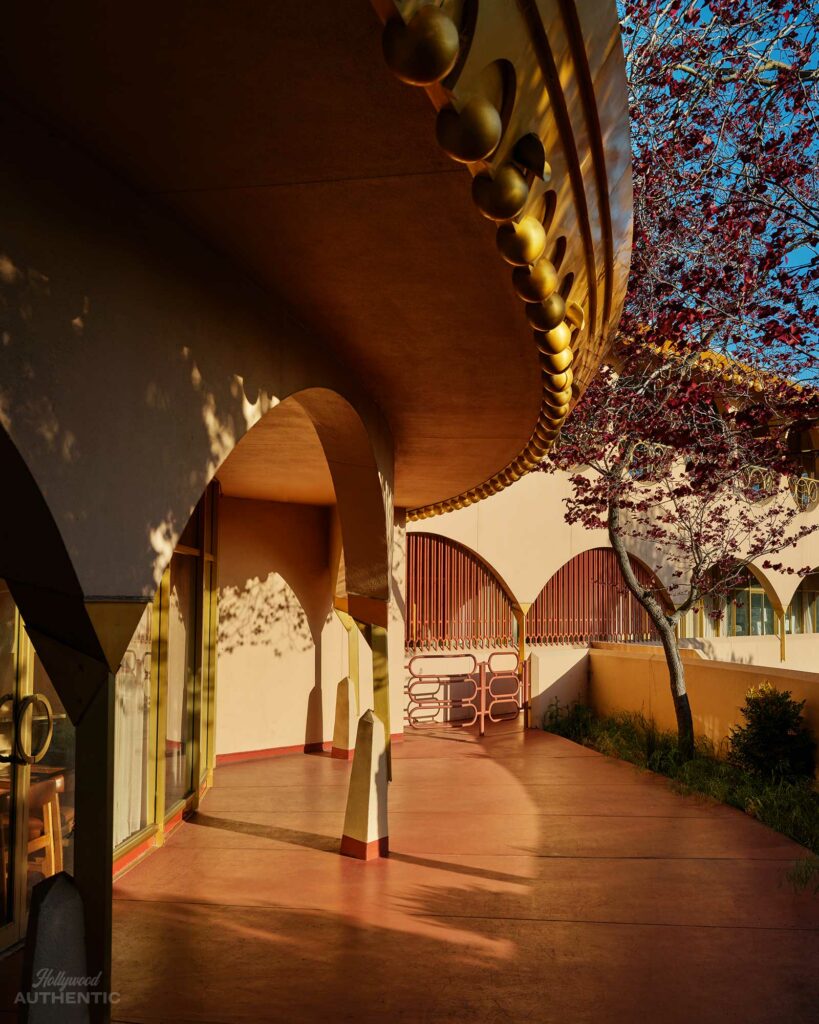
Photographs and video by MARK READ
Marin County Civic Center. 3501 Civic Center Drive, San Rafael, CA 94903, United States. www.marincounty.org



